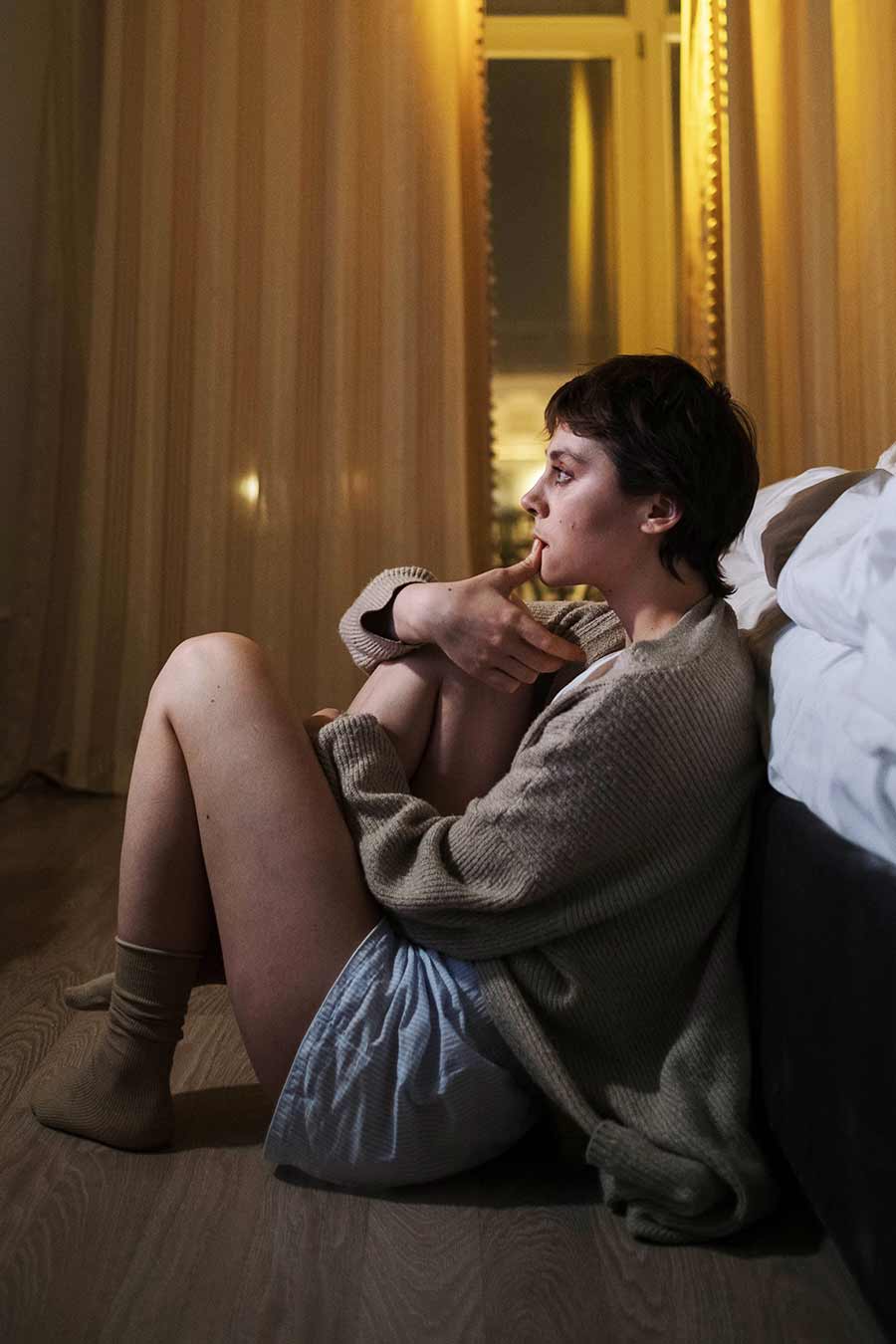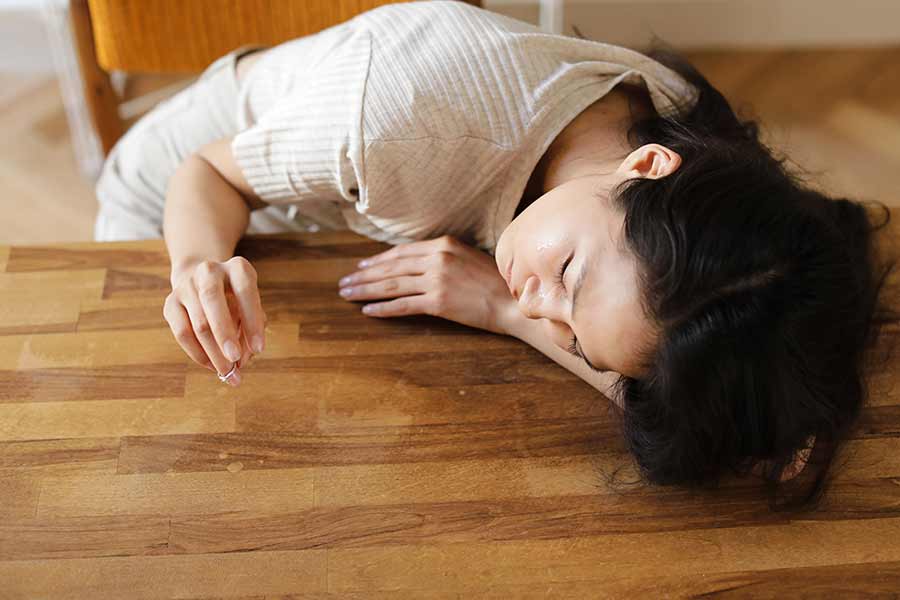The biggest problem is accepting “negative” emotions. They have no tolerance for the days when they feel sad, upset, listless. They try in every possible way to escape from “negative” emotions.
There are no positive or negative emotions. There are emotions. They are all here for a reason. There are only healthy and unhealthy ways to overcome “negative” emotions.
Sadness in itself is not an unhealthy emotion

When its intensity and duration is too long, when it is accompanied by the irrational belief “It will never get better” and when it turns into depression, then it becomes unhealthy. Choking grief and running away from it is unhealthy! When we do this persistently, sadness can turn into depression.
We have so much sadness that there is nowhere else to stand. It overwhelms us. If you cry, just do that: cry. Live that emotion, let it go through you, don’t hold it convulsively inside you. Tears are healthy. It is not healthy to push them.
Feel in your body what happens when you push them. It’s as if your heart is heavy. Notice how relieved you feel when you cry well.
Why an apology? Do you apologise like that even when you are happy? “Sorry to laugh, I’m happy” – does this sound like something people apologise for?
However, some people feel guilty when they are happy. They try not to be “too” happy because it may bother others. When you are happy, be happy with all your heart. When you are sad, be sad and don’t blame yourself for it. NO ONE is super happy, positive, full of enthusiasm and energy 24/7.
Also check: Antidepressive
Everyone has a bad moment, day, period!

Some people seemingly have everything – health, love, family, good income, their companies, and it is they who torment themselves the most when they are not happy. As if they have no right to it.
“I have everything. I feel disgusted and ungrateful that I am not happy despite that.” Now, someone who doesn’t have it all will think it’s pampering. Not. It is just a man who has a spectrum of emotions, both pleasant and unpleasant.
Same as everyone else

When a certain “negative” emotion is there for too long and when its intensity is too strong, then problems arise. The same goes for “positive” emotions.
Example:
If happiness is of such intensity and duration that it turns into a long-lasting euphoria that you do many things without any brakes and thoughts and go into mania – that is the problem.
After mania comes depression. It’s a way for your brain to get you back in balance. The principle of homoeostasis.
When you are constantly on the seesaw of mania-depression and when it negatively affects your life and interferes with your functioning—that is a problem, and you need to contact a professional.
Also check: Protect us
Also, when you are happy, it is quite normal to be sad. The brain has to make a balance. It just works that way. It is not realistic to expect you to always be happy even though social networks tell us otherwise.
Think of this as a seesaw. You cannot be constantly on either side. The brain seeks balance and tries to make it.
Fear also has its function. It points us to possible danger and is there to protect us.
We can’t help but be afraid in general. Some people want to never feel any fear again – an irrational expectation. For example, if the fear were not there, you could cross the street without any problems, even though cars were passing by. Who would normally do that?
However, if it is too intense and lasts too long when it turns into phobias, anxiety and/or panic attacks – then it becomes a problem.
Sadness, nervousness, worry, regret, disappointment are healthy negative emotions, i.e., healthy responses to adverse events, while depression, anger, anxiety, guilt, shame, self-pity, feelings of inadequacy are unhealthy negative emotions.
In the background, there are mostly IRRATIONAL BELIEFS about a certain event.

Example:
A healthy emotional reaction to losing a job would be sadness, disappointment, nervousness but also the belief that after a while you will find another job or possibly start your own business. Regret, rest and take action.
On the other hand, if you have an irrational belief in the background that you will never find another job, that you are incapable of finding another job, that you will lose your job forever, if you fall into depression and despair and incapacitate yourself to take action – it is an unhealthy negative emotion, triggered and reinforced by irrational beliefs.
Unhealthy negative emotions prevent us from taking action. Let’s get stuck. We lose the will and energy to move on.
Healthy negative emotions come, let them be there, WE DO NOT RUN, we do not stay fixed for them – they pass, and we continue to function normally.
So all the emotions are there FOR A REASON. Running away from “negative” emotions leads to their accumulation, and they find a way to get out – through panic attacks, through psychosomatic illnesses, through depression, through addiction…
It is especially important to mention addiction. It is a classic escape from “negative” emotions.
Rarely does anyone enter into alcoholism or drug addiction just for pleasure? It is much more often an escape.
Also check: Reasons
Emotional anaesthesia

The question is never “Why the addiction?”. But “Why is there pain, what’s behind it?” Addiction is just a symptom. If it’s a way to alleviate “negative” emotions or get away from them, take care!
This is just a sure way to go into depression, addiction, to become even more anxious. To amplify all problems ten times. While it provides short-term relief, in the long run, it takes you all!
